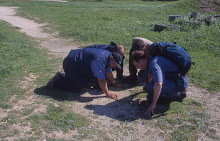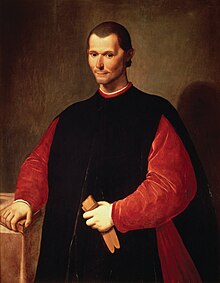Ecology is a strange discipline. A few ecologists are familiar with the innumerable diversity of organisms and habitats, and propose generalization based on their observations. This is standard science, but oddly enough this method is fiercely opposed by the dominant school of ecology, that thinks that generalizations rooted in observations are “pattern based ecology” and that "explanatory mechanism" must be provided. This boring debate dates to the beginning of ecology, and has much to do with the fact that there are about 300,000 species of vascular plants, 23,000 vertebrates and 1,000,000 species of insects, a dozen or so of major biomes and an astounding number of different communities, and it takes long to get acquainted with this diversity, whereas many abandon direct observation of ecosystems after their degree and become much more familiar with books than with nature. There is also an obvious relationship with political spirit of the time – “pattern” ecology was probably dominant in the 70s when the left was dominant, but is a minority today with vociferous radical Republicans in America and conservative grovernemes all around European countries.
But background is just a fragment of the picture. There is a more profound phylosophical underlying contrast, revealed by the frequent use in debates of term “mechanistic”. The Law of Gravitation is not mechanistic, it is phenomenological (strange to an ecoogist but true); Newton didn’t provide a mechanism for the attraction among the bodies; he explained with the force of attraction among the bodies the patterns of motion of planets obsreved by Kepler. I bet that an ecologist would have criticized him, and it must be said that Newton was actually criticized for not providing a mechanism by a few – mainly by aristotelians. The contrast between the dominant and the minority schools of ecology is the fundamental contrast between aristotelians and platonics. Ecology is largely aristotelic, physics is largely platonic. Galileo was condemned not because he was copernican – the theory was admitted as possible by the chief of the Vatican astronomers, the jesuit Christophorus Clavius – but because in the book “Dialogue concerning the two chied systems of the World” he ridiculized the aristotelian Simplicius. There is a famous ecology blogger that is ostensibly similar to Simplicius to any ecologist that have read the (fantaastic) book of Galileo. A platonic sees the regularity of mathematics in the apparently messiness of phenomena – in phylosophical terms he believes in the reality of universals – whereas Aristotelians thinks that regularities do not exist – universals do not exist - and it is impossible to convince him of the opposite. But it is impossible to do science if you believe that mathematical regularities do not exist, and this is the reason why Galileo adopted a rather neoplatonic point of view - he says that the book of nature is written in mathematical language, a typical platonism – and attacked harshly the aristotelians (eventually succumbing) and why Aristoteles is still actual in the politics, in literature, and logic, but his physics and to a lesser extent biology are close to superstition.
And yet science –as put forward by Galileo- of Aristoteles and Plato, of particular and universal. It would be nice if the two phylosophical attitudes could cooperate as happens in theorical and experimental physics, instead of purposelessly quarreling all time. This doesn’t happen because the overcoming of the depp but naive intuitive positions of Aristeoteles and Plato happens only if things are considered not statically – as invariably the ancient Greeks did – but dinamically. The synthesis of Galielo arose from the study of cynematic - the motion of bodies - and ecologists - while repeating endlessly the word "process" - rarely consider patterns in time - with a notable exception, the ecology of limnos, undoubtedly vecause such ecosystems are very simple but not real, not laboratory constructions.






